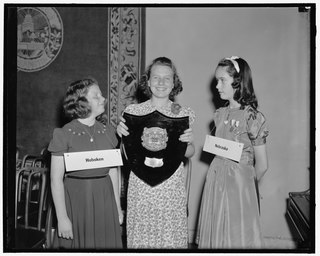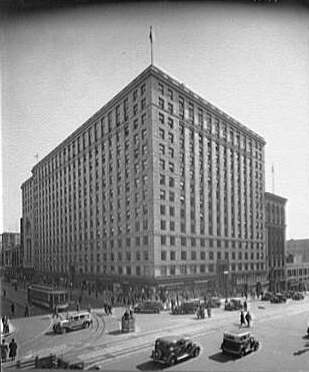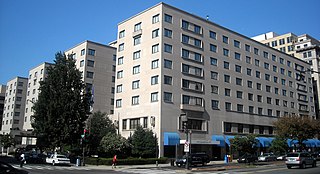
A spelling bee is a competition in which contestants are asked to spell a broad selection of words, usually with a varying degree of difficulty. To compete, contestants must memorize the spellings of words as written in dictionaries, and recite them accordingly.

Spellbound is a 2002 American documentary that was directed by Jeffrey Blitz. The film follows eight competitors in the 1999 Scripps National Spelling Bee. The film received positive reviews and won several awards, including a nomination for the Academy Award for Best Documentary Feature.
Frank Louis Neuhauser was an American patent lawyer and spelling bee champion, who won the first National Spelling Bee in 1925 by successfully spelling the word "gladiolus". He was 11 years old when he won the spelling bee.

The Scripps National Spelling Bee is an annual spelling bee held in the United States. The bee is run on a not-for-profit basis by The E. W. Scripps Company and is held at a hotel or convention center in the Washington, D.C. metropolitan area during the week following Memorial Day weekend. Since 2011, it has been held at the Gaylord National Resort & Convention Center hotel in National Harbor in Oxon Hill, Maryland, just outside Washington D.C. It was previously held at the Grand Hyatt Washington in Washington D.C. from 1996 to 2010.

The 2nd National Spelling Bee was held at the National Museum in Washington, D.C., on Thursday, June 17, 1926, sponsored by the Louisville Courier-Journal. Scripps-Howard would not sponsor the Bee until 1941.

The 4th National Spelling Bee was held at the National Museum in Washington, D.C., on May 23, 1928, hosted by the Louisville Courier-Journal. Scripps-Howard would not sponsor the Bee until 1941.

The 5th National Spelling Bee was held at the National Museum in Washington, D.C., on May 21, 1929, by the Louisville Courier-Journal. Scripps-Howard would not sponsor the Bee until 1941.

The 8th National Spelling Bee was held at the National Museum in Washington, D.C. on June 7, 1932, sponsored by the Louisville Courier-Journal. Scripps-Howard would not sponsor the Bee until 1941.

The 9th National Spelling Bee was held in Washington, D.C., on May 30, 1933, organized by the Louisville Courier-Journal. Scripps-Howard would not sponsor the Bee until 1941.

The 12th National Spelling Bee was held in Washington, D.C., on May 26, 1936, at the National Museum. Scripps-Howard did not sponsor the Bee until 1941.

The 13th National Spelling Bee was held in Washington, D.C. at the National Museum on May 25, 1937, and sponsored by the Louisville, Kentucky Courier-Journal. Scripps-Howard would not sponsor the Bee until 1941.

The 15th National Spelling Bee was held in Washington, D.C., on May 29, 1939. Scripps-Howard would not sponsor the Bee until two years later.

The 16th National Spelling Bee was held in Washington, D.C., on May 28, 1940. Scripps-Howard would not sponsor the Bee until the next year.

The 18th Scripps National Spelling Bee was held in Washington, District of Columbia on May 26, 1942, by the E.W. Scripps Company. There was no National Spelling Bee after this competition until 1946 due to World War II.

The 21st Scripps National Spelling Bee was hosted in Washington, District of Columbia on May 28, 1948, by the E.W. Scripps Company. The winner was 14-year-old Jean Chappelear of Ohio, who correctly spelled the word psychiatry.

The 24th Scripps National Spelling Bee was held in Washington, District of Columbia on May 25, 1951, sponsored by the E.W. Scripps Company, at the National Press Club.

The 37th Scripps National Spelling Bee was held in Washington, D.C. at the Mayflower Hotel, on June 3–4, 1964, sponsored by the E.W. Scripps Company.

The 50th Scripps National Spelling Bee was held in Washington, D.C. at the Mayflower Hotel on June 8–9, 1977 sponsored by the E.W. Scripps Company.

The 59th Scripps National Spelling Bee was held in Washington, D.C. at the Capital Hilton on May 28–29, 1986, sponsored by the E.W. Scripps Company.









